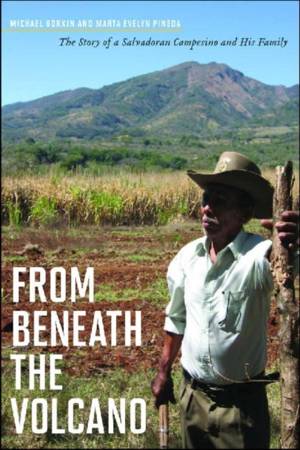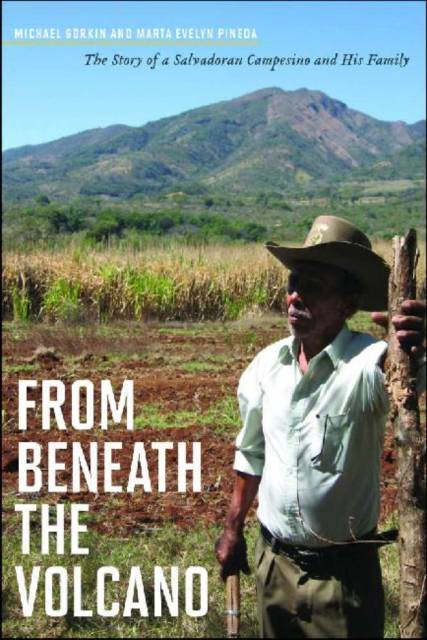
- Afhalen na 1 uur in een winkel met voorraad
- Gratis thuislevering in België vanaf € 30
- Ruim aanbod met 7 miljoen producten
- Afhalen na 1 uur in een winkel met voorraad
- Gratis thuislevering in België vanaf € 30
- Ruim aanbod met 7 miljoen producten
Zoeken
From Beneath the Volcano
The Story of a Salvadoran Campesino and His Family
Michael Gorkin, Marta Evelyn Pineda
Hardcover | Engels
€ 93,45
+ 186 punten
Omschrijving
In 1980 El Salvador was plunged into a bloody civil war, and Luis Campos, a peasant farmer, found himself drawn into a deadly political maelstrom of guerrilla fighting for twelve years. In this collection of fascinating and revealing oral histories, Gorkin and Pineda portray the personal and social lives of Luis and his family, who for the past eighteen years have been working to rebuild their lives in their new community beneath the Guazapa volcano. Luis, his mother, his wife, his in-laws, his children, and some neighbors recall in a simple and often eloquent manner their experiences of everyday life before, during, and after the civil war. Nin a Bonafacia, Luis's mother, tells of the days before the war when two of her daughters were murdered and she fled with her family to a refugee camp. Julia, Luis's wife, recounts her life as a guerrillera during which, incidentally, she gave birth to the first two of her eight children. Joaqui´n, a neighbor and comrade-in-arms, discusses how he and others took control of the land of Comunidad Guazapa and began rebuilding in those turbulent days and months right after the war. Margarita and Francisco, the two oldest children, with candor and insight discuss the trajectory of their lives and that of the postwar generation. And at the center of all these stories stands Luis, the guerrillero, farmer, neighbor, husband, father-and raconteur par excellence. In sum, the multiple voices in From Beneath the Volcano combine to form a rich tapestry displaying a story of war, family, and community and provide a never-before-seen view of both the past and present El Salvador.
Specificaties
Betrokkenen
- Auteur(s):
- Uitgeverij:
Inhoud
- Aantal bladzijden:
- 224
- Taal:
- Engels
Eigenschappen
- Productcode (EAN):
- 9780816529629
- Verschijningsdatum:
- 1/11/2011
- Uitvoering:
- Hardcover
- Formaat:
- Genaaid
- Afmetingen:
- 152 mm x 229 mm
- Gewicht:
- 489 g

Alleen bij Standaard Boekhandel
+ 186 punten op je klantenkaart van Standaard Boekhandel
Beoordelingen
We publiceren alleen reviews die voldoen aan de voorwaarden voor reviews. Bekijk onze voorwaarden voor reviews.











